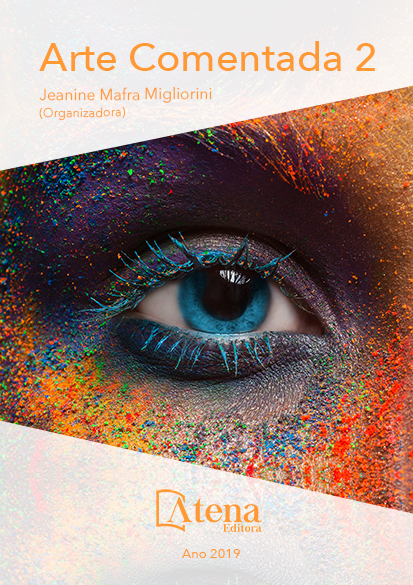
UMA PÁGINA EM BRANCO: ENSINO DE LITERATURA E ARTES NUMA PERSPECTIVA PÓS-COLONIAL
Este artigo apresenta resultados
e reflexões de uma pesquisa realizada com
internos do Centro de Triagem de uma casa
de reabilitação para homens em estado de
mendicância, situada na cidade de AnápolisGoiás/Brasil. A pesquisa buscou interpretar os
modos de reelaboração das identidades desses
sujeitos em relação à sua vivência nas ruas, a
partir da atividade criativa em Literatura e Artes.
Para isso, foram ministradas aos internos
cinco oficinas de fruição estética e escrita
criativa: Cine Club, Autorretrato, Arte-Criação,
Escrita Criativa e Sarau Literário. As oficinas
tiveram como propósito favorecer a fruição e
criação artística, e para isso, foram trabalhados
pedagogicamente vários conteúdos em
diferentes linguagens, com uma variedade de
materiais para discussão, reflexão e expressão
criativa dos internos. O embasamento teórico
desse estudo se deu pelas concepções da
Crítica Pós-Colonialista, entre os escritos de
Edward Said, Gayatri Spivak e Homi Bhabha.
Estes autores mudaram o eixo de uma crítica
exclusivamente eurocêntrica, formulando
novas análises da relação imperialismo-cultura
e abrindo caminhos para abordagens póscoloniais autônomas e seus desdobramentos
nas pedagogias culturais da atualidade. Os
resultados mostraram que as produções
de arte e escrita criativa despertaram, nos
sujeitos investigados, a reflexão sobre si
mesmos, passando, assim, a perceberem a
realidade por eles vivida como algo que pode
ser elaborado individual e coletivamente, numa
atitude de superação dos estereótipos e da
marginalização
UMA PÁGINA EM BRANCO: ENSINO DE LITERATURA E ARTES NUMA PERSPECTIVA PÓS-COLONIAL
-
DOI: 10.22533/at.ed.5681918018
-
Palavras-chave: Pós-Colonialismo. Ensino. Literatura. Artes. Pedagogias culturais.
-
Keywords: Post-Colonialism. Teaching. Literature. Art. Cultural Pedagogies.
-
Abstract:
This article presents results and
reflections of a research carried out with inmates
of the Screening Center of a rehabilitation
house for men in a state of begging, located in
the city of Anápolis-Goiás / Brazil. The research
sought to interpret the ways of re-elaborating
the identities of these subjects in relation to
their experience in the streets, from the creative
activity in Literature and Arts. For this purpose,
five workshops of aesthetic and creative writing
sessions were given to the inmates: Cine Club, Self-portrait, Art-Creation, Creative Writing and Literary Sarau. The purpose of the
workshops was to promote artistic creation and enjoyment, and for this purpose, various
contents in different languages were worked on pedagogically, with a variety of materials
for discussion, reflection and creative expression of the inmates. The theoretical basis
of this study came from the conceptions of Post-Colonialist Criticism, between the
writings of Edward Said, Gayatri Spivak and Homi Bhabha. These authors have shifted
the axis of an exclusively Eurocentric critique, formulating new analyzes of the relation
between imperialism and culture and opening the way to autonomous postcolonial
approaches and their unfolding in the current cultural pedagogies. The results showed
that the art productions and creative writing aroused in the investigated subjects the
reflection about themselves, thus, perceiving the reality they lived as something that
can be elaborated individually and collectively, in an attitude of overcoming stereotypes
and marginalization.
-
Número de páginas: 15
- LEDA MARIA DE BARROS GUIMARÃES
- CAROLINE FRANCIELLE ALVES
- DEBORA CRISTINA SANTOS E SILVA


